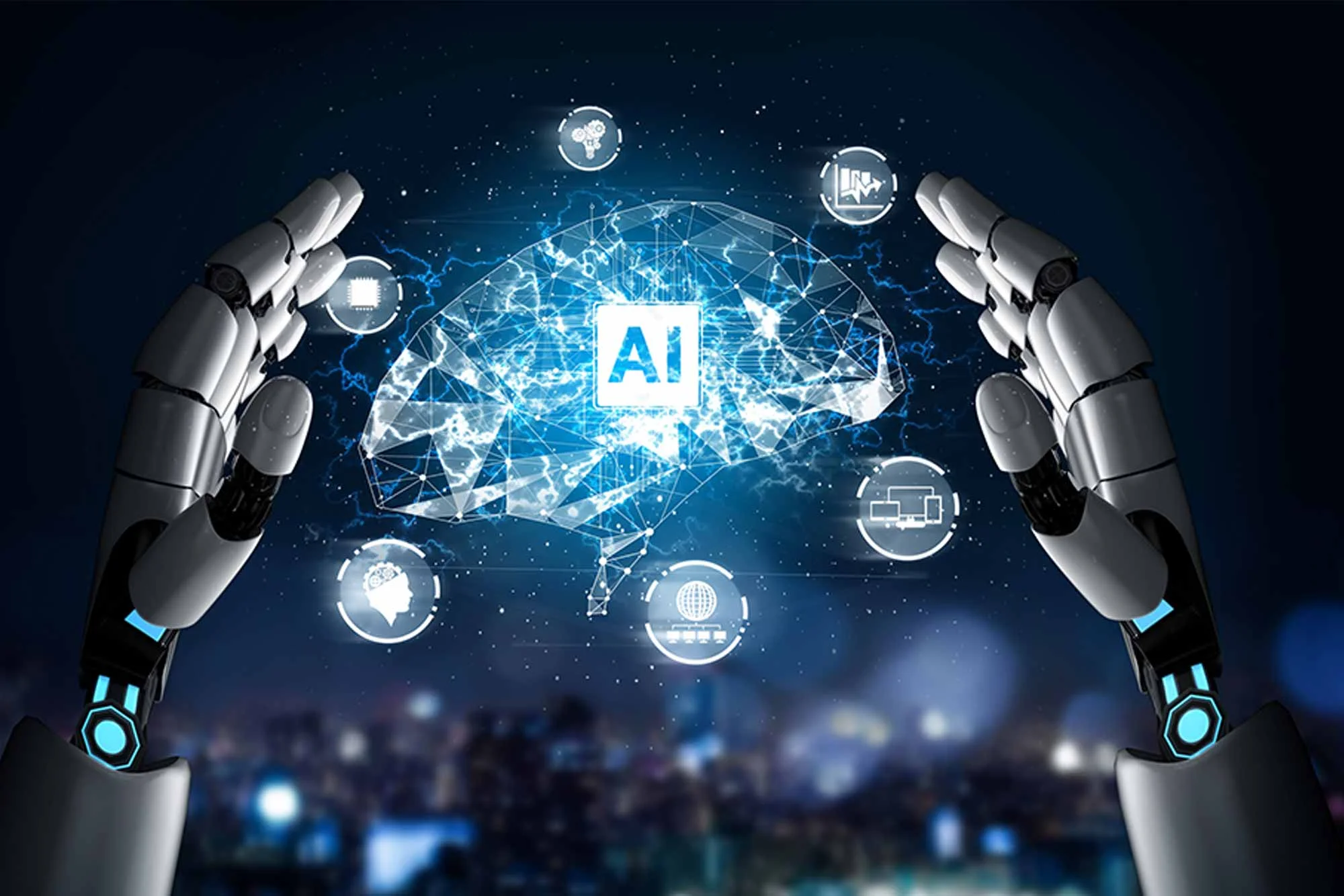As technology relentlessly progresses, artificial intelligence (AI) has moved from the realm of science fiction into a tangible asset for business operations across the globe. Large and small companies are increasingly turning to AI to enhance efficiency, reduce costs, and drive innovation. In this dynamic landscape, understanding how AI can be integrated into your business could very well determine your company’s competitive edge and future success.
AI Today – More Than Just Automation
AI’s role in modern businesses transcends simple automation. Today, it’s about sophisticated systems capable of analyzing vast amounts of data to make predictive decisions, personalize customer experiences, and optimize logistic operations. From AI-driven chatbots that provide 24/7 customer service to complex algorithms that predict market trends, AI tools are reshaping how businesses interact with their customers and manage their internal processes.
Strategic Financial Management with AI

One of the most impactful ways AI is revolutionizing businesses is through financial management. AI systems can now oversee and analyze financial transactions with unprecedented accuracy and speed, identifying trends and anomalies that would be impossible for human eyes. This capability leads to more informed decision-making and strategic financial planning. Integrating AI into your financial processes doesn’t always mean replacing your financial team. Instead, consider how a fractional finance director can streamline your business finances, working in tandem with AI to ensure precision and efficiency in financial reporting and forecasting. This hybrid model not only maximizes the potential of your financial strategy but also keeps your business agile and ready for any market changes.
Enhancing Customer Engagement with AI

In the realm of customer engagement, AI is a game-changer. Personalization is key in today’s competitive market, and AI excels at providing this in real time. By analyzing customer data, AI can help tailor experiences, offers, and interactions to individual preferences, increasing customer satisfaction and loyalty. AI can automate routine interactions, freeing up human employees to handle more complex queries and provide a higher level of service where it truly matters. This strategic deployment of AI improves customer interactions and enhances the overall efficiency of business operations.
AI and Inventory Management: A Perfect Match
Efficient inventory management is critical to the profitability and sustainability of any business that handles physical goods. Here, AI technologies shine by offering solutions that predict demand, optimize stock levels, and reduce wastage. Through the integration of IoT (Internet of Things) devices and AI, businesses can achieve real-time tracking and management of inventory. This system provides precise data on stock levels and suggests optimal replenishment schedules and logistics routes, reducing overstocking and stockouts. Such capabilities ensure that businesses can respond more swiftly to market changes and customer demands, significantly reducing holding costs and enhancing service delivery.
The Cornerstone of Efficiency: Structured Content Management

As businesses grow, the data and content they generate expand exponentially. Managing this content effectively is crucial for operational efficiency, maintaining regulatory compliance, and safeguarding data privacy. Here, AI steps in with structured content management systems designed to handle, categorize, and archive data seamlessly. These systems apply AI algorithms to automate the process of content tagging and retrieval, making it easier to find and utilize information quickly.
AI-driven content management systems are equipped to analyze the content, derive insights, and suggest actions, turning passive data storage into an active decision-support tool. By the end of this process, businesses witness a significant transformation where structured content management to decrease costs and increase revenue becomes a reality, marking a pivotal point in the operational overhaul.
AI-Driven Market Analysis and Decision Support
Quickly understanding market trends and customer needs gives businesses a notable advantage. AI excels in this area through its capacity to analyze huge datasets and gain actionable insights. These insights can inform everything from marketing strategies to product development, aligning closely with customer expectations and market demand.
AI tools can simulate market scenarios and predict outcomes of certain business decisions, providing a robust foundation for strategic planning. This predictive capability allows businesses to get ahead of trends and adapt their strategies proactively rather than reactively.
Here is an example:
Integrating advanced tools like an AI photo generator can elevate your marketing efforts by producing high-quality, detailed images from simple text prompts. This not only saves time but also allows businesses to create personalized visuals that align perfectly with their branding strategies. By leveraging AI-generated images, companies can support their market insights with compelling visuals, making campaigns more engaging and impactful.
Enhancing Cybersecurity with AI

AI provides a critical layer of security for businesses. AI systems can monitor network traffic for unusual patterns, detect potential threats, and respond to them more quickly than human personnel. AI can learn from these interactions, continually improving its detection capabilities and adapting to new types of cyberattacks. This proactive approach to cybersecurity protects sensitive data and safeguards a company’s reputation and customer trust, which are invaluable in today’s digital marketplace.
The Future of Work: AI and Automation
Looking forward, the integration of AI in business is set to reshape the workplace itself. Routine task automation frees employees for more complex and creative work, enhancing job satisfaction and pushing innovation forward. However, this shift also requires a rethink of job roles, employee training, and organizational structures.
Forward-thinking businesses are already investing in continuous learning and development programs to ensure their workforce can thrive in an AI-enhanced environment, fostering a culture of innovation and adaptability that is crucial for long-term success.
Cultivating a Culture of Innovation through AI
The adoption of AI technology can catalyze a broader cultural shift within an organization, fostering an environment ripe for innovation. As AI handles routine and repetitive tasks, it opens up space for teams to engage in more strategic and creative endeavors. This shift boosts productivity and enhances employee engagement, as staff are tasked with higher-level projects and problem-solving activities that offer more fulfillment and professional growth opportunities.
The iterative nature of AI, where systems continually learn and improve from incoming data, models the kind of continuous improvement mindset that can inspire teams. Encouraging an atmosphere where innovation is not just supported but expected paves the way for groundbreaking ideas and solutions that can redefine industry standards. Companies that successfully integrate AI and cultivate this culture are often seen as leaders in their fields, attracting top talent who are eager to work at the cutting edge of technology and business practices. This transformative approach not only future-proofs a business but also solidifies its reputation as a pioneer in the new era of digital business.
Embracing AI for Future-Proofing Your Business
Adopting AI is not merely about staying relevant but positioning your business to capitalize on future opportunities. The businesses that will thrive are those that view AI as a partner in their strategic planning, integrating its capabilities across operations, customer relations, financial management, and cybersecurity. As we look to the future, the question isn’t whether AI will become essential to business operations—it’s how quickly and effectively each business can harness its potential to drive real value and growth.









